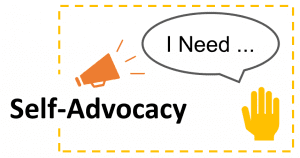Confidence speaks to the feeling of trust and belief we possess in one’s abilities, qualities, and judgments. Confidence impacts so many areas of our lives including the way we interact with other people and the decisions we make in our lives.
A lack of confidence can thereby influence us in detrimental ways when it comes to how we engage with others and the choices we decide to make. Thus, being aware that we are battling low confidence is important so that we can deal with it and embrace more healthy patterns and behaviors as a means of improving confidence and improving outcomes.
 You Avoid Conflict: One sign that you may be dealing with a lack of confidence is a tendency to avoid conflict. When you are in a constant state of questioning yourself, it can make it hard to believe that you have something valuable to contribute, especially in scenarios that seem tense. You might feel that your opinions or insights are going to contribute to more conflict rather than solve the problem, thus you remain silent or distant in response.
You Avoid Conflict: One sign that you may be dealing with a lack of confidence is a tendency to avoid conflict. When you are in a constant state of questioning yourself, it can make it hard to believe that you have something valuable to contribute, especially in scenarios that seem tense. You might feel that your opinions or insights are going to contribute to more conflict rather than solve the problem, thus you remain silent or distant in response.- Doubt Your Decisions: Another signal that could alert you to a lack of confidence is doubting your decisions. When you don’t believe in yourself and your abilities, you will naturally doubt whether you’ve made the right choices. This is often fueled by a fear that your choices will lead to mistakes, failure, or problems.
- Take Critiques Personal: People who struggle with confidence also tend to take criticism personally. Generally, criticism that is offered by others is designed to help us improve in some manner or area of our lives. Many people have the ability to take critiques and apply them in a way that helps them get better and improve. However, when confidence is low you will take the critique and internalize it. This makes it hard for you to learn from it because you see it more as an attack than a learning tool.
- You Don’t Advocate For Yourself: A failure to stand up for yourself might also highlight a lack
 of confidence. When you are unable or unwilling to advocate for what you want or need, especially in situations where you are being mistreated, it might mean that you don’t think highly enough of yourself to do so. If you doubt your own value and worth, you won’t see it as worthwhile or meaningful to pursue what you want/need because you won’t see yourself as worthy
of confidence. When you are unable or unwilling to advocate for what you want or need, especially in situations where you are being mistreated, it might mean that you don’t think highly enough of yourself to do so. If you doubt your own value and worth, you won’t see it as worthwhile or meaningful to pursue what you want/need because you won’t see yourself as worthy - You Defend Your Decisions: Another sign that you could be dealing with low confidence is if you constantly feel the need to defend the choices you make. If you question yourself and your abilities you will often doubt whether you made the right choices. These doubts can make you feel as if you need to explain yourself to others, though this is often not required or even desired by other people.
- Inability To Handle Compliments: It can easily be disguised as humility, but sometimes an inability to accept compliments can hint at low confidence levels. When you doubt yourself and your own value or worth, compliments can feel so uncomfortable to the point that you don’t even want to receive them. This is because the compliments can feel like a lie as compared to the truth you’ve created in your own mind about the minimal value/worth you have. When you doubt the truth of the good things being said about you, your desire to hear and receive them will be greatly diminished.
 Indecisiveness: A final way you might be able to tell if you are dealing with a lack of confidence is struggling with indecisiveness. As mentioned above, low confidence can make you doubt your decisions because of a fear that you will possibly make the wrong choice. This can cause you to simply become paralyzed and fail to make any decisions at all so that you don’t face a negative outcome.
Indecisiveness: A final way you might be able to tell if you are dealing with a lack of confidence is struggling with indecisiveness. As mentioned above, low confidence can make you doubt your decisions because of a fear that you will possibly make the wrong choice. This can cause you to simply become paralyzed and fail to make any decisions at all so that you don’t face a negative outcome.
The inner doubts we have about ourselves go on to impact our outside choices and behavior. A combination of the signs listed above could mean you need to pause and assess your feelings about yourself and your abilities. When you are able to address low self-esteem, you are able to improve your inner beliefs which ultimately means an improvement in behavior and outcomes.


 You Avoid Conflict: One sign that you may be dealing with a lack of confidence is a tendency to avoid conflict. When you are in a constant state of questioning yourself, it can make it hard to believe that you have something valuable to contribute, especially in scenarios that seem tense. You might feel that your opinions or insights are going to contribute to more conflict rather than solve the problem, thus you remain silent or distant in response.
You Avoid Conflict: One sign that you may be dealing with a lack of confidence is a tendency to avoid conflict. When you are in a constant state of questioning yourself, it can make it hard to believe that you have something valuable to contribute, especially in scenarios that seem tense. You might feel that your opinions or insights are going to contribute to more conflict rather than solve the problem, thus you remain silent or distant in response. of confidence. When you are unable or unwilling to advocate for what you want or need, especially in situations where you are being mistreated, it might mean that you don’t think highly enough of yourself to do so. If you doubt your own value and worth, you won’t see it as worthwhile or meaningful to pursue what you want/need because you won’t see yourself as worthy
of confidence. When you are unable or unwilling to advocate for what you want or need, especially in situations where you are being mistreated, it might mean that you don’t think highly enough of yourself to do so. If you doubt your own value and worth, you won’t see it as worthwhile or meaningful to pursue what you want/need because you won’t see yourself as worthy Indecisiveness: A final way you might be able to tell if you are dealing with a lack of confidence is struggling with indecisiveness. As mentioned above, low confidence can make you doubt your decisions because of a fear that you will possibly make the wrong choice. This can cause you to simply become paralyzed and fail to make any decisions at all so that you don’t face a negative outcome.
Indecisiveness: A final way you might be able to tell if you are dealing with a lack of confidence is struggling with indecisiveness. As mentioned above, low confidence can make you doubt your decisions because of a fear that you will possibly make the wrong choice. This can cause you to simply become paralyzed and fail to make any decisions at all so that you don’t face a negative outcome.
